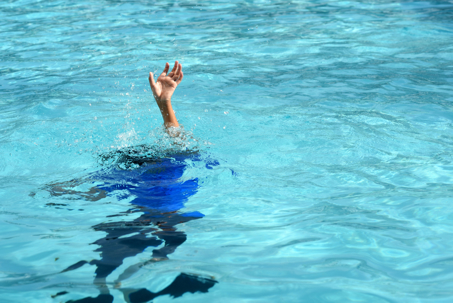Water can be a source of relaxation and fun, but it can also pose significant dangers if safety measures aren’t taken seriously. Drowning accidents and other water-related injuries happen more often than many realize, with devastating consequences. If you’ve lost a loved one or suffered an injury in a water-related incident, you might have questions like, “Who is responsible?” or “Can I seek compensation for this tragedy?”
Understanding liability in these situations is crucial, especially when negligence plays a role.
Who Can Be Held Liable in Water-Related Accidents?
Accidents involving pools, lakes, or even waterparks often stem from someone’s failure to prioritize safety. Fortunately, the law recognizes that victims shouldn’t have to bear the burden of someone else’s negligence. Here are the key parties that could be held liable:
1. Pool Owners
Whether a private homeowner, hotel, or recreational facility owns a pool, it is responsible for keeping it safe. Failing to maintain proper barriers like fences or locked gates, not cleaning hazardous debris, or poor pool maintenance can all be considered negligence. Pool owners also have a duty to warn about known dangers, like unexpectedly deep water.
2. Lifeguards or Supervisors
Professional or designated lifeguards are tasked with ensuring swimmer safety. A lifeguard failing to perform CPR, respond promptly to visible distress, or follow proper protocols can lead to devastating outcomes. Their inaction or insufficient training could make them—or their employer—liable for accidents.
3. Property Managers
If the accident takes place at a public pool or facility, the property managers often shoulder the responsibility of maintaining safety standards. This includes properly functioning drains, visible depth markers, and safe equipment like ladders. Failing to enforce safety guidelines can put visitors at risk.
4. Equipment Manufacturers
Defective products like pool drains, slides, or flotation devices can lead to entrapment, electrocution, or injury. If faulty equipment contributed to the accident, the manufacturer may share responsibility under product liability laws for producing unsafe products.
5. Daycare Centers or Schools
When a water-related accident involves children, places providing childcare or school supervision could be held accountable if they failed to provide appropriate oversight or safety precautions during water activities.
Proving Fault in a Water-Related Accident
Legal compensation usually hinges on proving negligence or identifying a defendant’s failure to uphold their responsibilities. This process requires building a strong case with clear evidence. Below are steps to establish liability in drowning accidents or pool-related injuries:
1. Establishing the Duty of Care
Pool owners and other parties are obliged to protect swimmers or visitors. For example, it is reasonable to expect a hotel pool to have fenced perimeters, posted safety rules, and secure guest conditions. Negligence occurs when this duty is breached.
2. Collecting Incident Reports and Witness Statements
Were there bystanders or lifeguards on duty during the accident? Witness testimony can shed light on what could have been done to prevent the incident. If a drowning occurred in a public area, a police or health department report might also help establish the facts.
3. Photos or Video Evidence
Photographic or video evidence of hazardous pool conditions—like broken safety fences or malfunctioning pool drains—can further establish fault. Video surveillance from public pools or hotels may even capture the events leading to the accident.
4. Expert Testimony
Expert witnesses, such as pool inspectors or engineers, can evaluate whether equipment defects or improper pool maintenance directly caused the accident. Additionally, medical professionals can help explain any injuries or underlying health outcomes associated with drowning or near-drowning.
5. Proof of Damages
Comprehensive documentation of medical bills, therapy costs, funeral expenses (in wrongful death claims), and any emotional toll will help reflect the extent of damages incurred.
What Kind of Compensation Can Victims and Families Seek?
Water-related accidents often cause more than physical harm—they can have lasting financial and emotional effects. If negligence is proven, victims or their families may be entitled to compensation, including:
- Medical Costs: Treatments for injuries, oxygen therapy, physical rehabilitation, or ongoing care due to brain damage from oxygen loss.
- Funeral Expenses: Tragically, drowning incidents often involve wrongful death claims. Families can seek compensation for burial and funeral costs.
- Lost Income and Future Earnings: If the victim was a financial provider or their injuries prevent them from working, reimbursement for lost income may be warranted.
- Pain and Suffering: Injury and loss affect more than day-to-day living—they cause tremendous emotional trauma. These damages aim to recognize that.
- Punitive Damages: Reserves punishment for particularly reckless or egregious actions, such as ignoring previous safety complaints.
Steps to Take After a Water-Related Accident
Navigating the aftermath of a water-related accident can feel overwhelming, but taking the right steps will protect both your future and your legal case. Here’s what you should do immediately following the incident:
- Seek Medical Attention – Prompt medical treatment can save lives and minimize long-term complications. Furthermore, medical records will serve as key evidence if legal action is taken.
- Report the Incident – Notify pool staff, property managers, or appropriate authorities of the accident as soon as possible and ensure the event is documented.
- Preserve Evidence – Gather evidence like photographs, contact information for witnesses, and physical items that may support your case (such as defective equipment).
- Consult a Personal Injury Attorney – Water-related claims can involve multiple parties and complex liability issues. An experienced personal injury attorney will help you investigate the circumstances and build a strong compensation case.
Swimming Pool Accidents and Injuries in Atlanta
Compensation for victims of water-related accidents can cover a range of damages, including medical expenses, lost wages, and pain and suffering. The calculation of these damages depends on various factors, such as the severity of the injuries and the impact on the victim's quality of life. Personal injury lawyers play a crucial role in this process, as they have the skills to accurately assess and argue for fair compensation. For residents of Cumming, GA, seeking the assistance of a local law firm like Van Sant Law can provide the advantage of local expertise and a personalized approach to handling their case. If you or a loved one has been affected by a water-related accident, don't hesitate to reach out at (800) 234-9556 for professional legal support to ensure your rights are protected and your needs are met.





